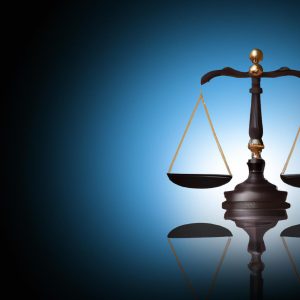When it comes to the ownership of real property, the question of whether your name is on the deed can often lead to confusion and misconceptions. In this article, we will delve into the legal implications of having your name on a deed and what it truly means in terms of property ownership. As experienced lawyers at Morgan Legal Group, specializing in estate planning and property law in New York City, we aim to provide clarity on this complex issue. Let us guide you through the intricacies of property ownership and shed light on the significance of having your name on a deed.
Understanding Property Ownership Through Deeds
When it comes to property ownership, having your name on a deed is a significant step towards establishing ownership rights. However, simply having your name on a deed does not always guarantee full ownership of the property. Understanding the specific type of deed and the language used within it is essential to determine the extent of your ownership rights. Deeds serve as legal documents that transfer ownership of real estate from one party to another, outlining the rights and responsibilities of each party involved.
There are different types of deeds that can be used to transfer property, each with varying levels of ownership rights. Common types of deeds include warranty deeds, quitclaim deeds, and grant deeds, each with its own set of implications for property ownership. It is crucial to thoroughly review the terms of the deed and understand the legal implications before assuming full ownership of a property based on having your name on the deed. Consult with a knowledgeable legal professional, such as the experts at Morgan Legal Group in New York City, to ensure a clear understanding of property ownership through deeds.
The Significance of Having Your Name on a Deed
In the world of real estate, having your name on a deed holds significant weight as it directly correlates with ownership rights to a property. When your name is listed on a deed, it signifies that you have a legal interest in the property and are recognized as a co-owner. This can have various implications on your rights and responsibilities concerning the property.
Ownership rights associated with having your name on a deed include the ability to make decisions regarding the property, such as selling, transferring, or refinancing it. Additionally, having your name on a deed can protect your investment in the property, as it establishes your legal claim to the asset. To ensure your ownership rights are protected and properly documented, it is crucial to seek legal guidance from a qualified attorney specializing in real estate law.
Legal Implications of Ownership vs. Title on a Deed
When it comes to real estate ownership, there is a common misconception that having your name on a deed automatically means you own the property outright. However, the legal implications of ownership versus title on a deed can be more complex than many people realize. While being listed on a deed does provide some level of ownership rights, it does not necessarily guarantee full ownership of the property.
**Key Points to Consider:**
- Ownership Rights: Having your name on a deed grants you certain ownership rights, such as the ability to transfer or sell the property.
- Legal Encumbrances: Title on a deed does not always protect against legal encumbrances, such as liens or easements that may affect your ownership rights.
Key Considerations for Property Ownership and Deeds
When your name is on a deed, it does not necessarily mean that you own the property outright. There are several key considerations to keep in mind when it comes to property ownership and deeds. It is important to understand the different types of ownership and how they can impact your rights and responsibilities as a property owner.
One key consideration is the type of deed that is used to transfer ownership of the property. **Different types of deeds** convey different levels of ownership interest, and it is important to understand the implications of each type. Additionally, it is important to consider any conditions or restrictions that may be attached to the deed, such as easements or covenants. **Consulting with an experienced real estate attorney** can help ensure that you understand your rights and obligations as a property owner.
Q&A
Q: If my name is on a deed, does that mean I own the property?
A: Not necessarily. While being listed on a deed is a strong indicator of ownership, there are other factors to consider.
Q: What other factors could affect ownership of a property?
A: Ownership can be influenced by the type of deed, any existing liens or mortgages on the property, and the presence of other owners or beneficiaries.
Q: How can I confirm my ownership of a property if my name is on the deed?
A: It is recommended to consult with a real estate attorney or title company to conduct a thorough title search to ensure your ownership rights.
Q: What should I do if there are discrepancies in the ownership information?
A: In cases of conflicting ownership claims, it may be necessary to resolve the issue through legal means, such as quiet title actions or legal disputes.
Q: Can I transfer ownership of a property if my name is on the deed?
A: Yes, you can transfer ownership through various means, such as a sale, gift, or inheritance, but it is important to follow legal procedures to ensure a smooth and valid transfer of ownership.
In Retrospect
In conclusion, having your name on a deed does not necessarily mean you own the property outright. Other factors, such as joint ownership, liens, and mortgages, can all impact your ownership rights. It is important to fully understand the implications of being listed on a deed before assuming ownership of a property. So, next time your name is on a deed, make sure to do your due diligence to ensure you truly own the property. Thank you for reading!
If you have a name on a property’s deed, do you truly own the property? This is a question that many people who are considering purchasing a property or inheriting one may have. The answer isn’t as straightforward as a simple yes or no. It depends on a few factors and understanding them is crucial in ensuring that you are the rightful owner of a property with your name on the deed.
First, let’s start with the basics. A deed is a legal document that transfers ownership of a property from one person to another. It is used when a property is bought, sold, or inherited. The person who currently owns the property is known as the “grantor,” and the person receiving ownership is called the “grantee.”
Now that we have a basic understanding of what a deed is, let’s answer the main question: “if your name is on a deed, do you own the property?”
The short answer is yes, having your name on a deed means that you have a legal claim to the property. However, there are a few things to consider:
1. Joint Tenancy vs. Tenants in Common
When purchasing a property with another person, there are two types of ownership that are commonly used: joint tenancy and tenants in common. In a joint tenancy, both parties have equal ownership of the property, and if one person passes away, their share automatically goes to the other owner. In a tenancy in common, both parties still have equal ownership, but if one person passes away, their share can be passed on to someone else through their will.
2. Your Name on the Deed vs. Your Name on the Mortgage
It’s crucial to understand the difference between having your name on the deed and having your name on the mortgage. The deed proves ownership, while the mortgage is a loan used to purchase the property. Just because your name is on the mortgage, it does not necessarily mean that you have ownership rights to the property. If you are listed as a co-signer on the mortgage, you are financially responsible for making payments, but the true ownership lies with the primary borrower.
3. Understanding Community Property Laws
In several states, any property acquired during a marriage is considered community property, meaning both spouses have equal ownership rights, regardless of whose name is on the deed. This is something to keep in mind if you are going through a divorce or are considering purchasing a property with your spouse.
4. The Type of Deed
There are different types of deeds that can be used to transfer ownership of a property. General Warranty Deeds are considered the strongest form of ownership and provide the highest level of protection to the grantee. Another form is a Quitclaim Deed, which transfers whatever interest the grantor has in the property, if any. If you are unsure about the type of deed that you have, it’s best to consult with a real estate attorney.
Benefits of Being Listed on a Deed
Now that we have established what being listed on a deed means and the factors that can affect your ownership, let’s discuss the benefits of being listed on a deed:
1. Legal Rights and Protections
Again, having your name on the deed proves ownership of a property, meaning you have legal rights and protections. This includes things like being able to make improvements or renovations to the property and being able to take out a loan against the property.
2. Building Equity
When you have a clear and legal claim to a property, you can build equity over time. This happens when you make mortgage payments, increase the value of the property, or pay off the loan early. The equity can be used as a down payment on another property or as a source of emergency funds.
3. Inheritance and Transfer of Ownership
If you pass away without a will, having your name on the deed means that your share of the property will automatically go to the co-owner(s). This can help avoid complicated legal procedures and ensure that your loved ones inherit the property smoothly.
Practical Tips for Dealing with Property Deeds
Now that we have established the importance of being listed on a property deed, here are some practical tips to keep in mind:
1. Keep Your Deed Safe
The deed is a vital legal document that should be kept in a safe place. Make sure to have a copy with your important documents, and consider storing the original in a safety deposit box.
2. Keep Your Records Up to Date
If you go through a life event like getting married, divorced, or having children, it’s essential to update your records to reflect the correct ownership of a property. This includes changing names, adding or removing co-owners, or updating the deed to reflect a change in property type.
3. Consult with a Real Estate Attorney
If you are unsure about the ownership of a property or have any doubts, it’s always best to consult with a real estate attorney. They can review your deed, provide legal advice, and help resolve any issues that may arise.
In Conclusion
Having your name on a deed means that you have a legal claim to a property. However, it’s crucial to understand the fine print and factors that can affect your ownership rights. Keeping the deed safe, staying informed about any changes in ownership, and consulting with a real estate attorney can help ensure that you are the rightful owner of a property with your name on the deed. Remember, when it comes to property ownership, knowledge is power.





